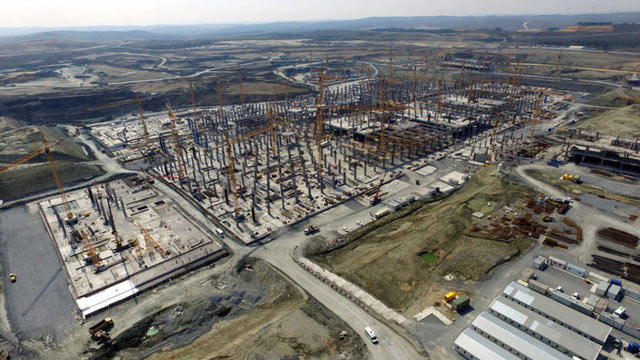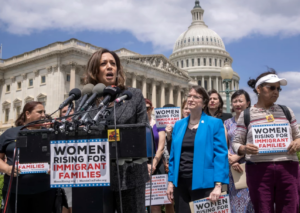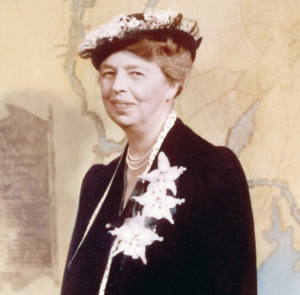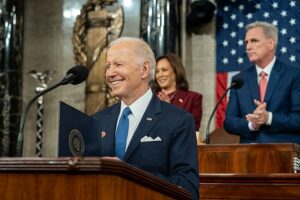Caught between two goals: Turkey’s Conflicting Quest for Sustainability and Economic Development

Construction for Istanbul’s new airport, courtesy of airline.ee via link http://bit.ly/2c84ZOc

Turkey has a long history of trying to stimulate its economy and protect fledgling industries through large-scale development strategies. A new 5-year plan is never far behind. But whether these largescale infrastructure projects are environmentally sustainable depends on who you ask.
Environmental activists, academics, businessmen and the Turkish government can’t seem to decide on how to attain sustainability, a term described by the UN as satisfying the needs of the present without harming the needs of future generations. In 2015, the world body set 17 sustainability goals to which member countries attempt to adhere. But which among these goals—from building resilient infrastructure to combatting climate change—should take priority varies from stakeholder to stakeholder.
During the EU accession negotiations in 2009, Turkey began to adopt environmental standards in line with Europe’s. Talks have recently restarted. Under the accepted provisions, Turkey prepares environmental impact reports for proposed development projects. Additionally, for many of the state’s larger projects, the government holds public meetings. But environmental activists like Onur Akgül of the Northern Forest Defense believes the meetings are only for show.
“The government is not interested in real methods to lessen the environmental catastrophe,” he said. “It can’t and it won’t. Because it’s economic and political survival depends on these projects.”
Akgül may have a point about the Turkish government’s drive to economically develop at any cost. New York University Professor Muserref Yetim, who specializes in political economy and water rights, said the debates over environmental concerns come down to one question: “are you going to have development or not?” Yetim points to New York City’s East River. The polluted canal was the result of an industrialization period, with cleanup happening only after the industries vacated. Economic development and environmental protection are often mutually exclusive, and compromising the former for the latter are “rich country problems,” says Yetim.
The Turkish government is still willing to work with some international environmental organizations, however. The UN Development Program has coordinated a number of smaller sustainable development and environmental projects in Turkey, with cooperation from government ministries.
And yet these partnerships are also complicated. As the UNDP’s head of programs in Turkey, Atila Aras, explained, his organization has no input when it comes to the government’s planned megaprojects—those that have the greatest environmental impact.
A megaproject is loosely defined as any project that costs over $1 billion, and in Turkey, these tend to be infrastructure projects. Istanbul’s third Bosphorus bridge, the Southeast Anatolia Project’s series of dams, Istanbul’s third airport, and the Izmir-Istanbul bridge all fit this category.
The Turkish government’s lack of cooperation with international organizations on controversial projects may explain the complaints by environmentalist groups within Turkey. Aras noted the challenge of making environmental sustainability a priority when, in a country like Turkey, economic growth is the far greater concern.
A report from the “Environmental Justice in Turkey” panel in the European Parliament heavily criticized a number of Turkey’s megaprojects, predicting, for example, that the building of Istanbul’s third airport will result in the loss of over 500,000 trees in one of the world’s oldest forests, which are important migration routes for birds and are the natural habitats of many other animals.
In addition to Northern Forest Defense, groups like WWF-Turkey and the Nature Association have spoken out about the government’s Dam projects and threats to biodiversity from building projects. Despite an energetic community of environmental organizations, activist Akgül fears the worst: “There are approximately 2,000 different plant species only in Istanbul, and 20 of them are endemic,” he said. “In time, they will be no more. The dunes in the villages Ağaçlı and Gümüşdere will be destroyed. The large vegetation areas in village Gümüşdere will be destroyed.”
Meltem Vatan Kaptan is an architecture professor at Bahçeşehir University in Istanbul and a member of the International Council on Monuments and Sites. She works as a scientific consultant with the Turkish Prime Ministry Directorate General Foundations on building projects involving historical sites. Focusing on local participation, Kaptan said, “The most important issue in the field of heritage and being able to have sustainable development, is to work hand in hand with the community.”
The Turkish Economic and Social Sciences Foundation, Turkey’s oldest think tank, is also focusing on involving local communities in sustainability. Itir Akdoğan works on sustainability at the foundation and is a former UNDP worker. She said, “We don’t see a city being sustainable or on the way to [becoming a]sustainable city without including participation. Sustainable cities is the goal and participation is the method.”
The foundation’s project, called Supporting Sustainable Cities, works with elected officials and citizens on the municipal level. The project aims to increase cooperation between elected officials and their constituents. Together the groups can come up with environmental solutions locally. Akdoğan admitted the organization needs to keep its projects on the municipal level if they have any hope of being effective. On the national level, the government is not currently receptive to policy suggestions or project proposals from think tanks.
Supporting Sustainable Cities project focuses on workshops for municipal governments on the ability benefit from using online tools to include citizens and local organizations in the decision-making process. Though Akdoğan and her think tank continue to develop sustainability projects, it is unclear if they will be able to create large-scale change without partnering with the national government.
Lack of access to the Internet is an obvious deterrent to any online participation in environmental movements. According to 2016 statistics from the Turkish Statistical Institute, Internet usage among individuals is at 61.2 percent of the population nationwide. However, in the historically Kurdish and underdeveloped southeast region, less than half, 48.5 percent, use the Internet. The success of any sustainability project based on “e-participation” requires greater access to the Internet, but municipal level governments cannot institute the large-scale infrastructure projects that bring the Internet into more homes.
Even if the national government was more open to working with activists and think tanks, it’s uncertain how effective the Ministry of Environment and Urban Planning could be. Following the July 15 coup attempt, the Justice and Development Party has charged hundreds of thousands of citizens with having ties to either Gülenist coup plotters or the Kurdistan Worker’s Party. The lucky ones were only removed from their positions, while others await trial. The purges have reached into civil service, education, the judiciary and the military. The government suspended 70 workers from the Ministry of Environment and Urban planning alone, according to reports by state-run, press agency Anadolu Agency.
The dissimilar and at times contradictory approaches to sustainable development appear to do little to slow the Justice and Development government’s push for megaprojects. Construction on Istanbul’s third project continues and the government has proposed a canal project that would create a second Bosphorous-like canal through Istanbul. The changing use of the sustainability rhetoric– be it to achieve economic, environmental or political goals – leaves Turkey mired in its present situation. Activists address the sustainability issues they see, and the national government works within UN regulations on partner programs while at the same time, going its own way.
Clare Busch is a Master’s student in both Journalism and Near Eastern Studies at New York University. She spent three years living in Turkey where she worked for various new outlets. Her areas of interest are religious movements, minorities, and women’s rights in Turkey.








